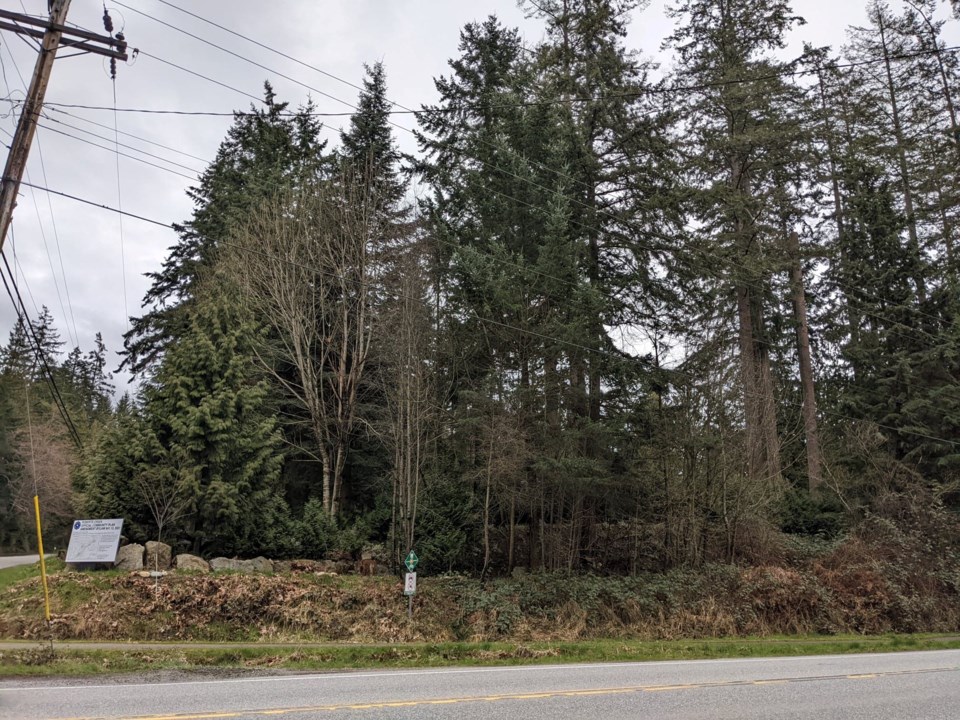A public hearing may soon be scheduled regarding a Roberts Creek property where four recreational vehicles are currently non-conforming, but seeking approval for temporary use.
Staff recommended abandoning the applications for 1220 Lockyer Road, which would require an amendment to the Roberts Creek Official Community Plan (OCP) and, if that is approved, a temporary use permit (TUP) would be applied for to consider the proposed use with specific conditions.
On March 17, Sunshine Coast Regional Directors (SCRD) were nearly split on the decision. Directors Lori Pratt (Halfmoon Bay), Leonard Lee (Area A) and Mark Hiltz (Area F) voted for the proposal to move forward. Roberts Creek director Andreas Tize and Elphinstone director Donna McMahon voted in opposition, as per the staff recommendation. (Only the rural directors were able to vote on this motion.)
The vote was made during a planning and community development committee meeting, so the motion will still need to be accepted at a board meeting before the decision is official. Then, the public hearing will be scheduled and staff will draft proposed conditions for a potential TUP.
Comments and concerns
In her presentation to directors, senior planner Julie Clark said there is “considerable opposition” to the proposal. A public information session was held by the applicant on January 27, and attended by around 85 people. While the staff report notes some support for the application, concerns included health and safety, environmental health, risks to immediate neighbours, liability and insurance, commercial intent, affordability for tenants, fairness, long-term intentions, parking and current density on the property.
“Staff wish to acknowledge that a decision in either direction will result in undesirable outcomes. With respect for all of those involved, especially with compassion for the tenants of the property, staff’s recommendation is to abandon the bylaw amendment,” Clark said.
The application was also referred to several agencies for comment. The staff report notes shíshálh Nation is “not in opposition to the abandonment of the proposed bylaw,” and requested geotechnical, archaeological and biological assessments of the property. Sḵwx̱wú7mesh Nation encouraged proper sewage and water hookup and disposal, as well as no campfires or open flames, and a unisex restroom facility instead of portable toilets, among other suggestions. Vancouver Coastal Health requests a formal assessment of the sewage system by a wastewater professional, and noted no sewage system upgrade has been filed to VCH in the past three years, since the addition of the RVs. A retro-active filing under the BC Sewerage Regulation will need to be considered, VCH replied in its response to the SCRD.
During the meeting, staff said MOTI had no objection to the proposal, but would like to ensure the RVs are in compliance with the 4.5-metre setback from the highway. MOTI also requires drainage to be managed on-site and the removal of a drain pipe leading to the multi-use path. The Area D APC recommended abandoning the application, and asked the SCRD to arrange flexible timing to allow the current tenants to find alternate housing. The Roberts Creek Official Community Plan Commission (OCPC) is also in opposition to the amendment application, citing its belief that the land use will set a precedent, among other concerns.
Housing crisis
Director Pratt said spoke in favour of a TUP as a way to hold the property owner accountable.
“I think it's going to take a considerable amount of time for the residents here to find somewhere else [to live]. So providing a limited time through the temporary use permit process that brings the property into compliance doesn't penalize the residents of this property in the same way,” she said, adding that the TUP can “provide some compassion by the local government and provides some surety to the community that there will be an end to this eventually.”
Gibsons director David Croal said he was sorry he was not able to vote on the issue, but commented that there are “no good alternatives” during the Coast’s housing crisis and pointed out that while an emergency housing committee started more than a year ago, there isn’t a “shovel in the ground.”
“I think the bigger picture is we're dealing with human beings here,” Croal said.
A “lose-lose situation”
But the area’s director, Tize, said it is a “lose-lose situation”. He said the process caused an erosion of the public’s trust in the SCRD and the elected board. Tize spoke in support of affordable housing, but said, “this wild west approach to infill housing is not something that I can support.
“I don't think there is a good solution to this problem. On one hand, we may be evicting tenants who unwittingly entered into this process. On the other hand, there is a clear violation of multiple bylaws and health regulations that were put in place for a reason,” Tize said, adding that the public raised “legitimate concerns.”
Tize “reluctantly” moved the staff recommendation to abandon the application, but that motion was defeated.
The application to amend the OCP received first reading on Dec. 9. It could receive second reading at the next SCRD board meeting, which is scheduled for March 24. Staff will also consider the amendment bylaw’s consistency with the 2022-2026 financial plan and the waste management plan, and report back to the board. When that board report comes forward, a public hearing can be scheduled.



